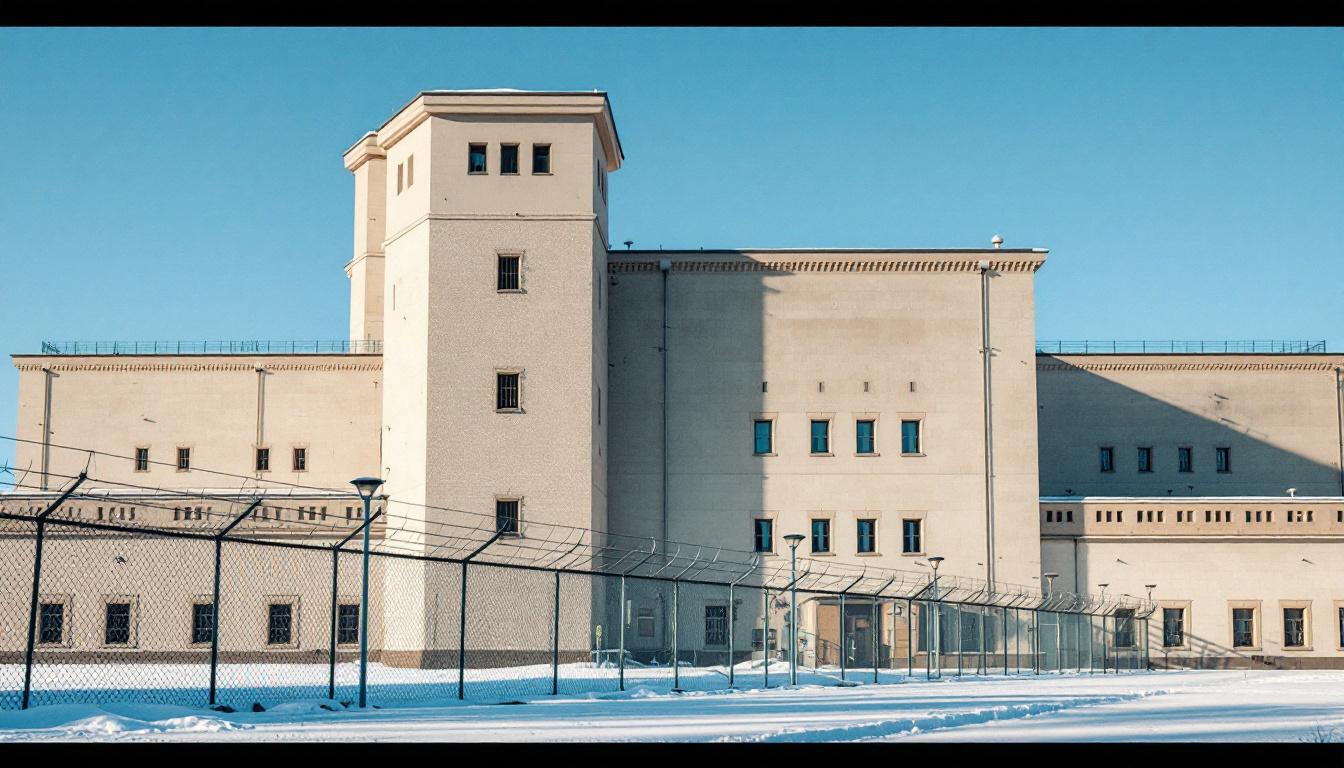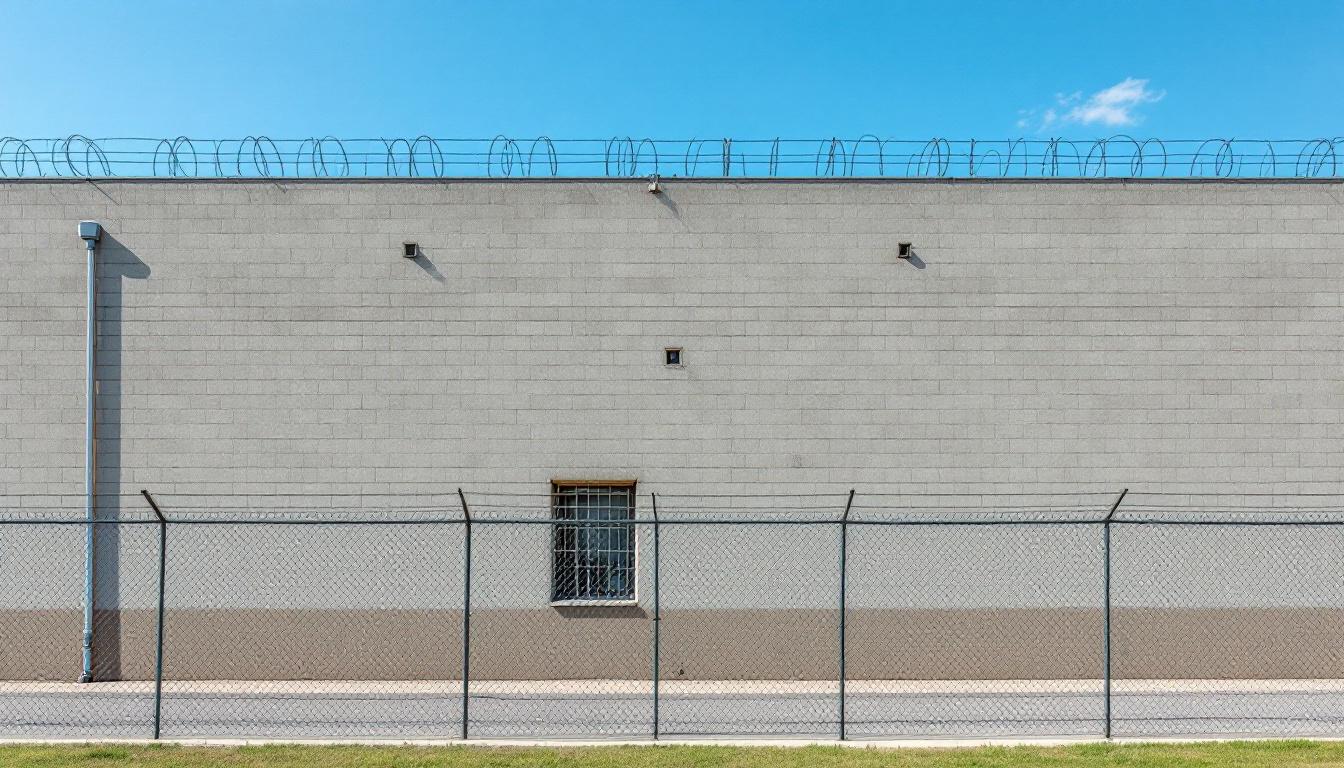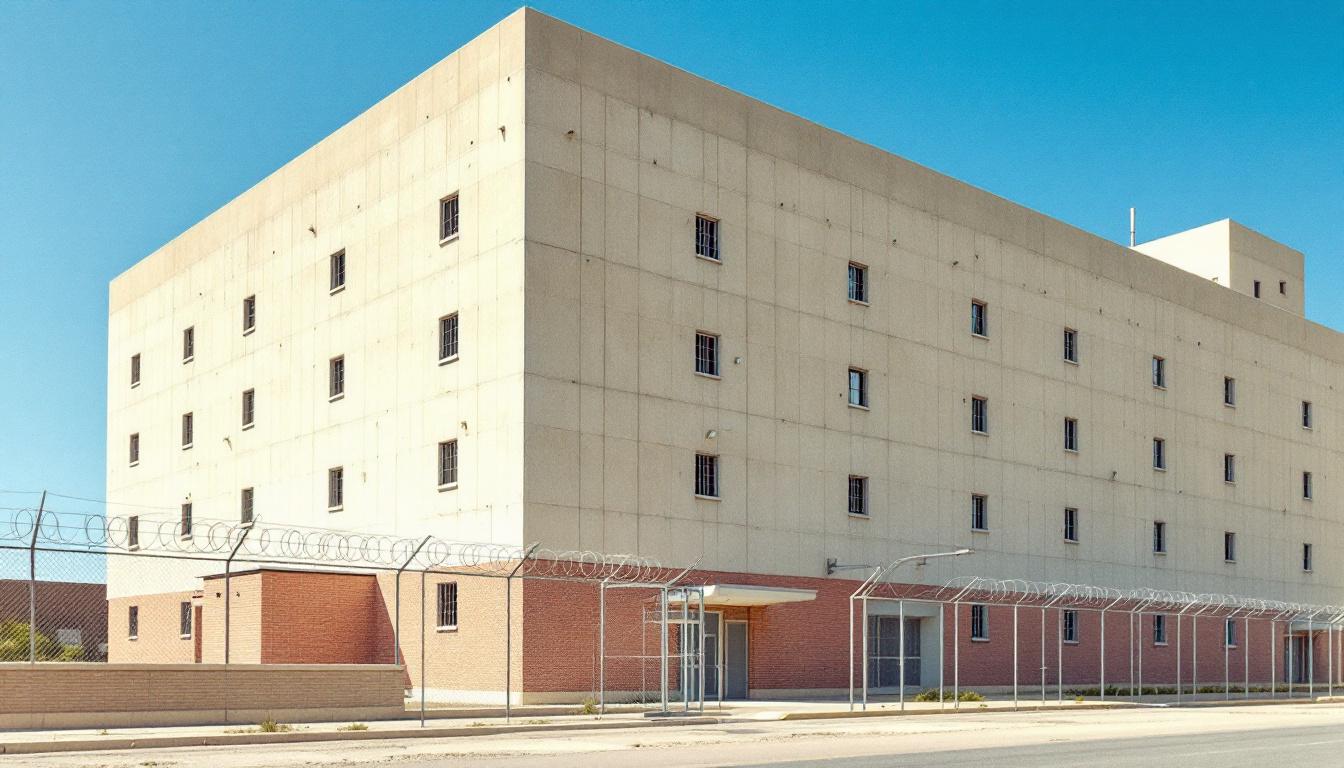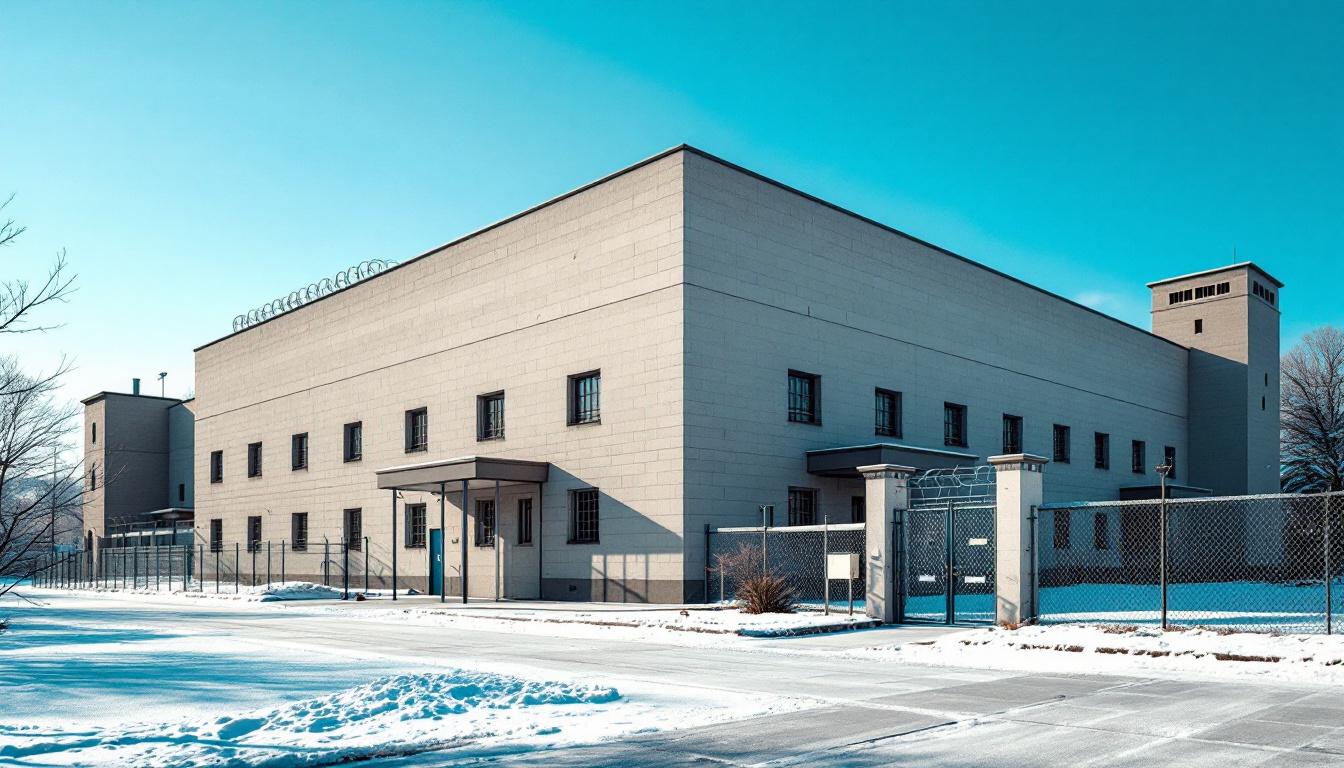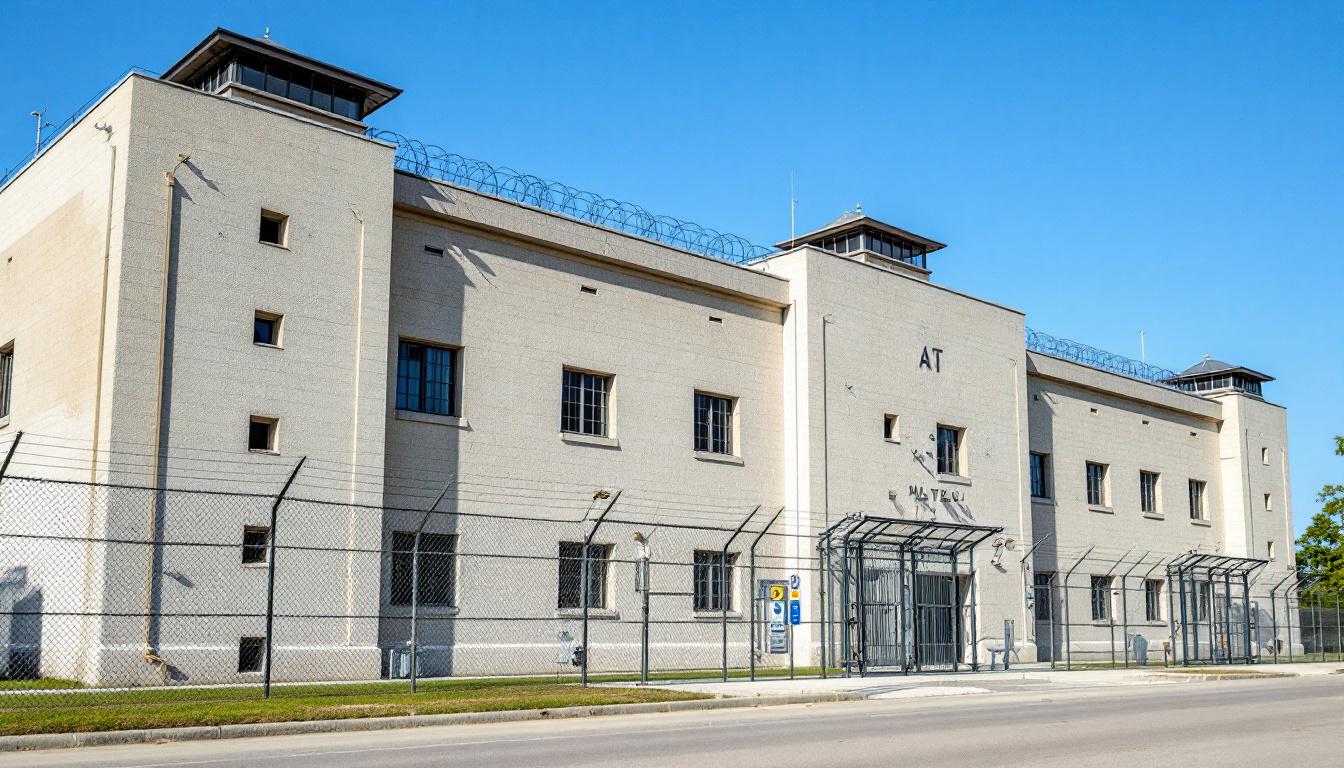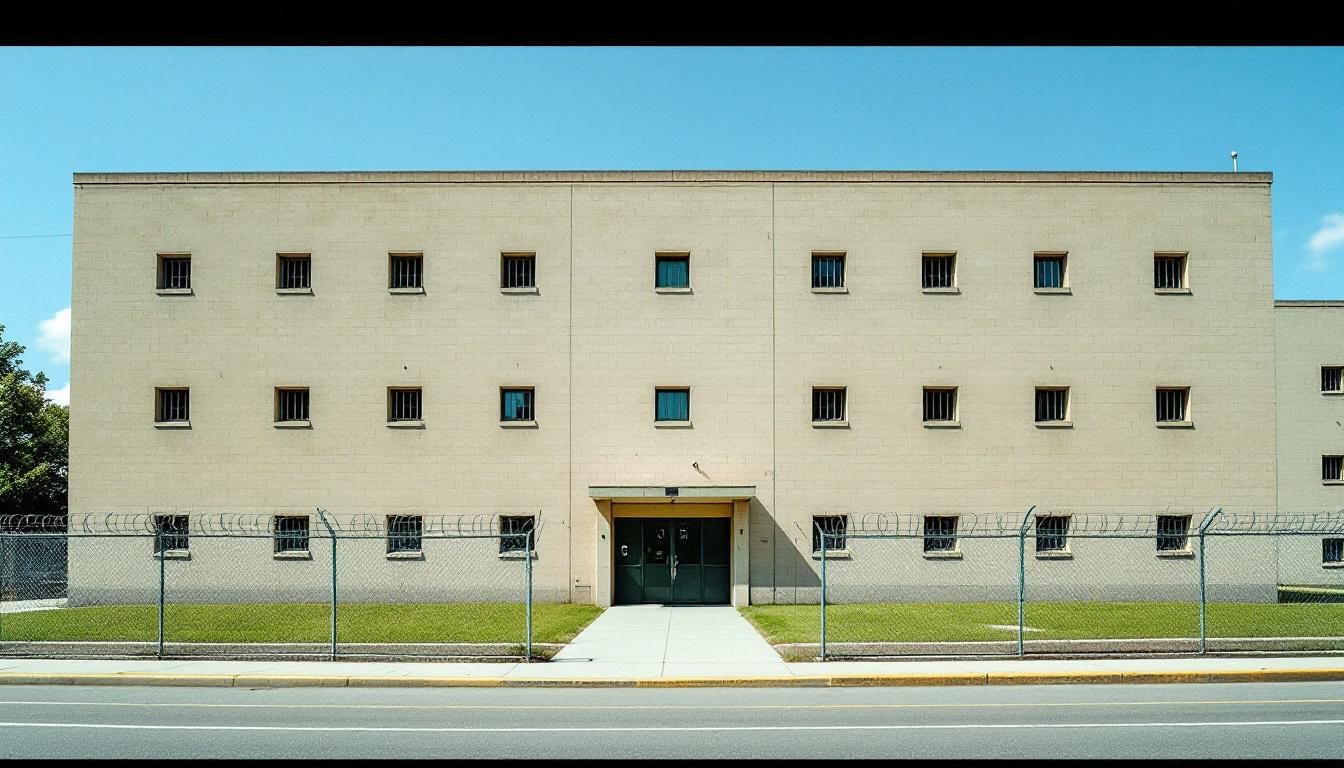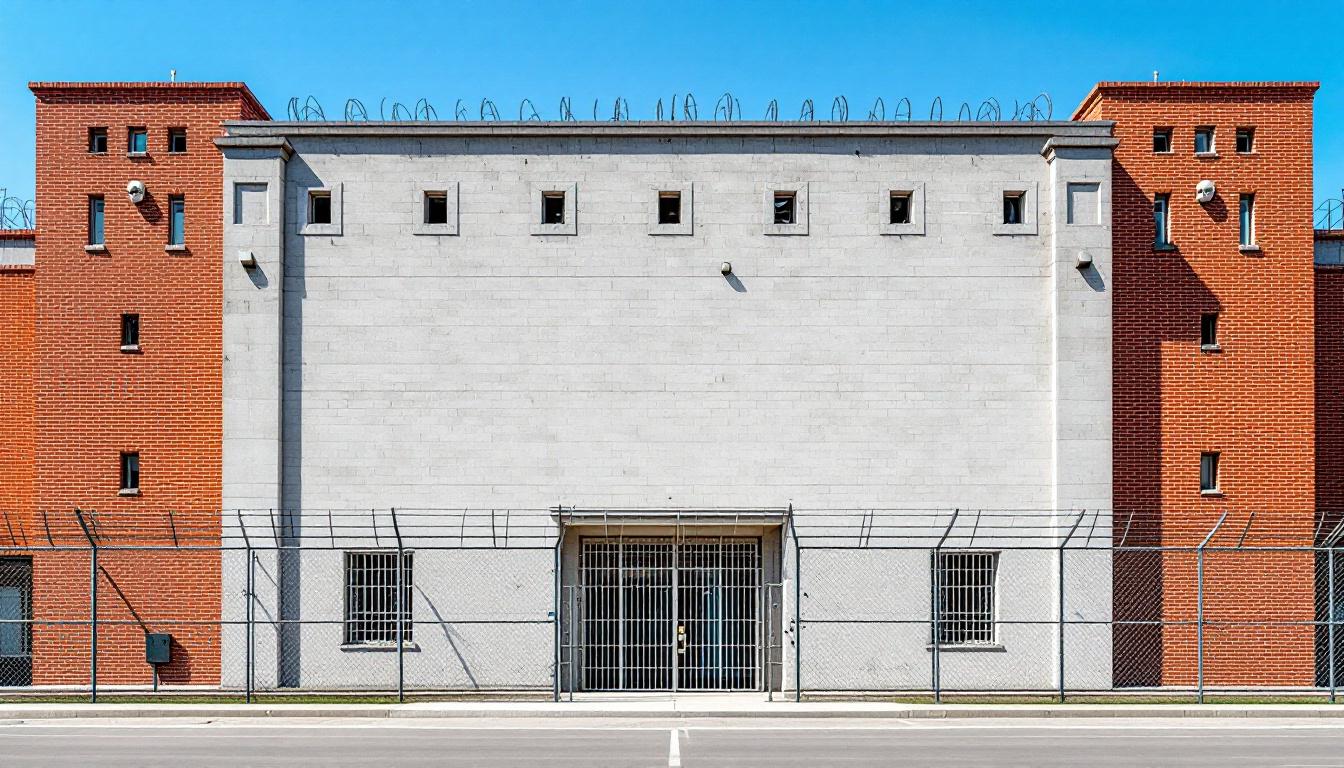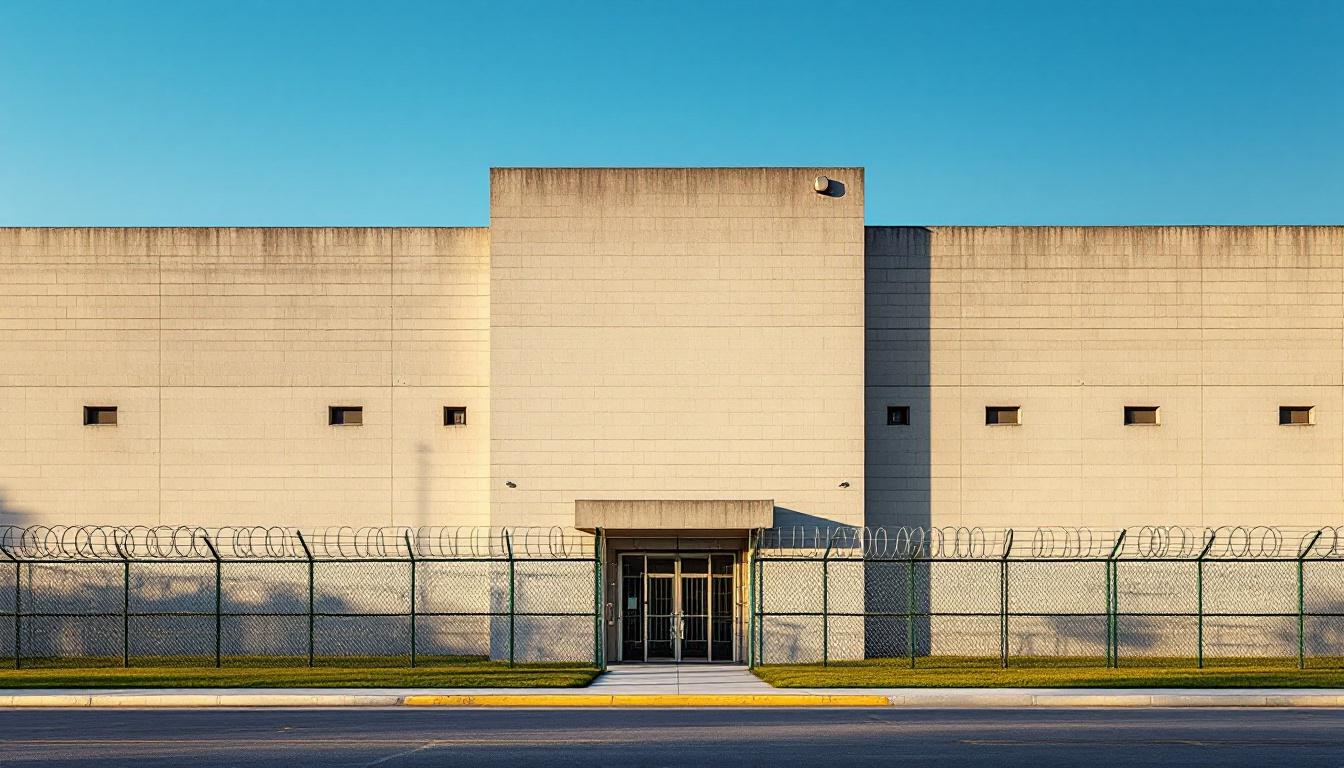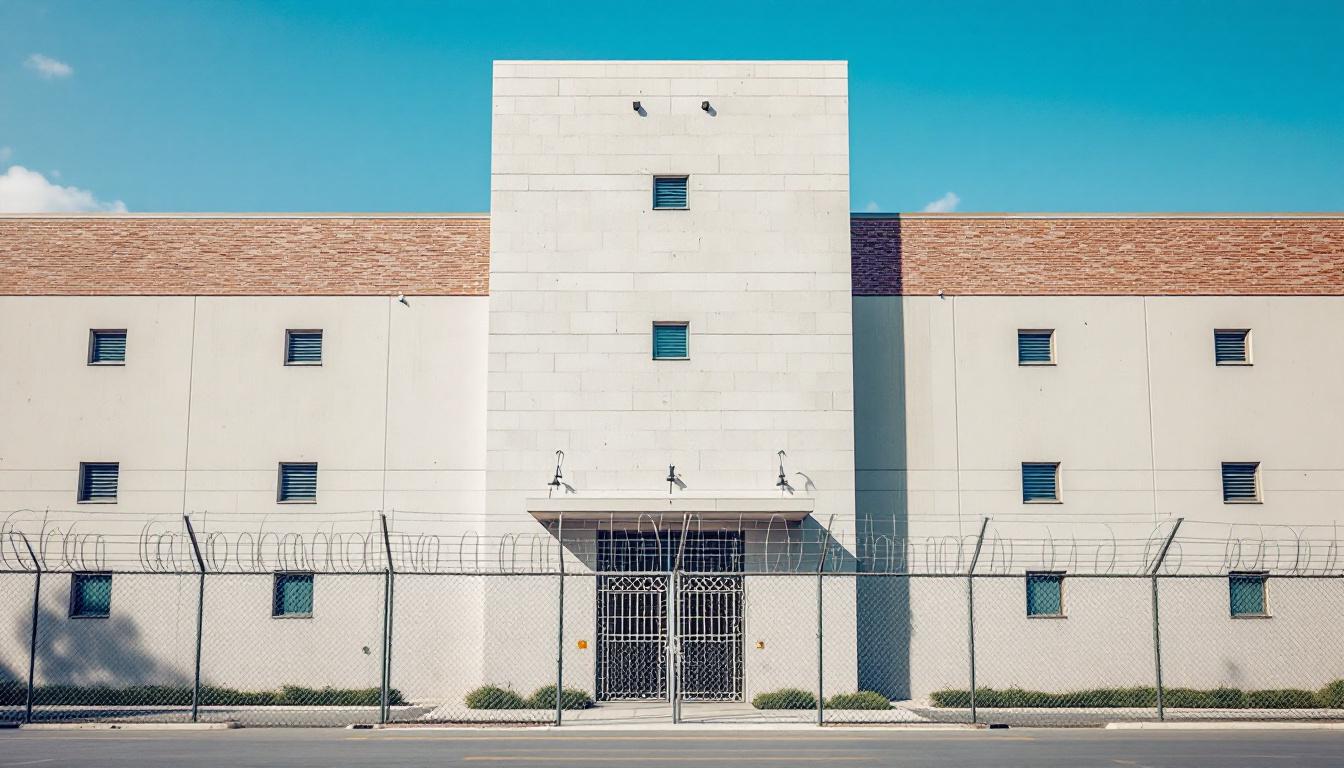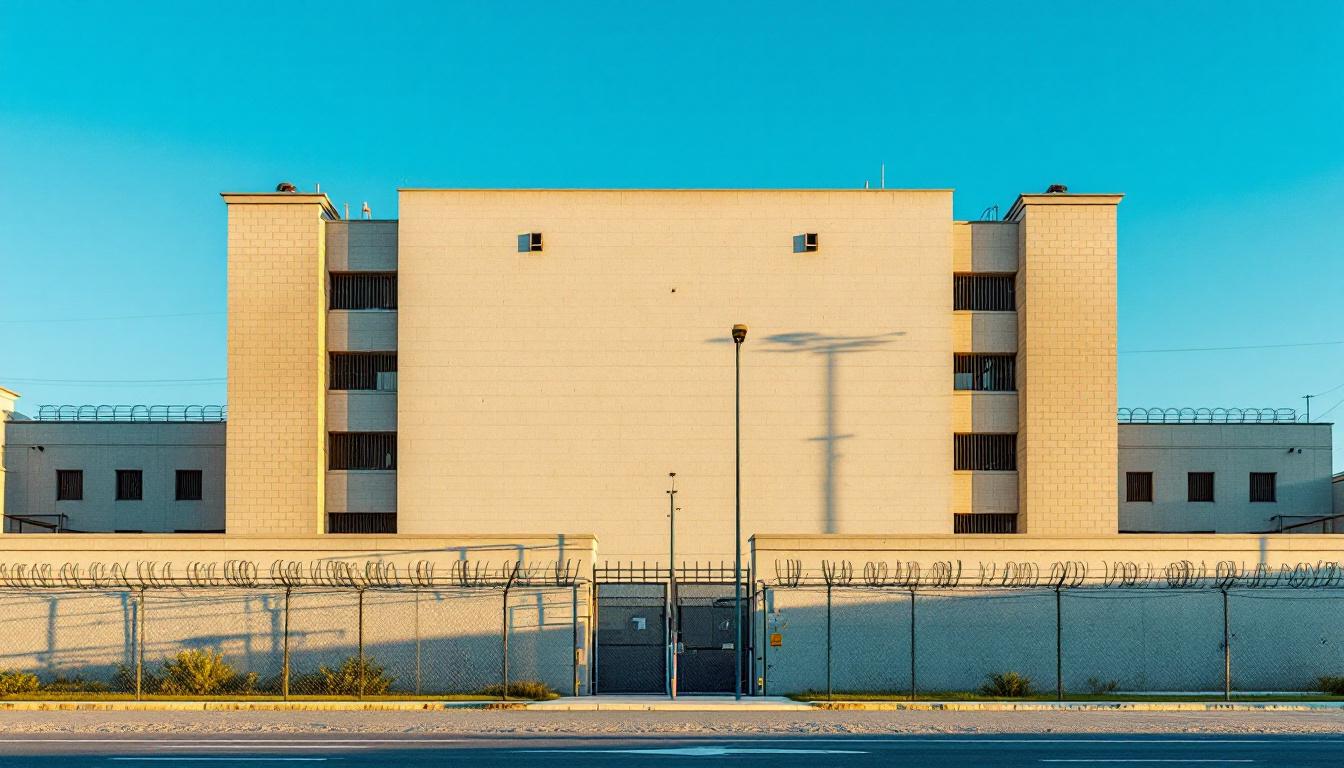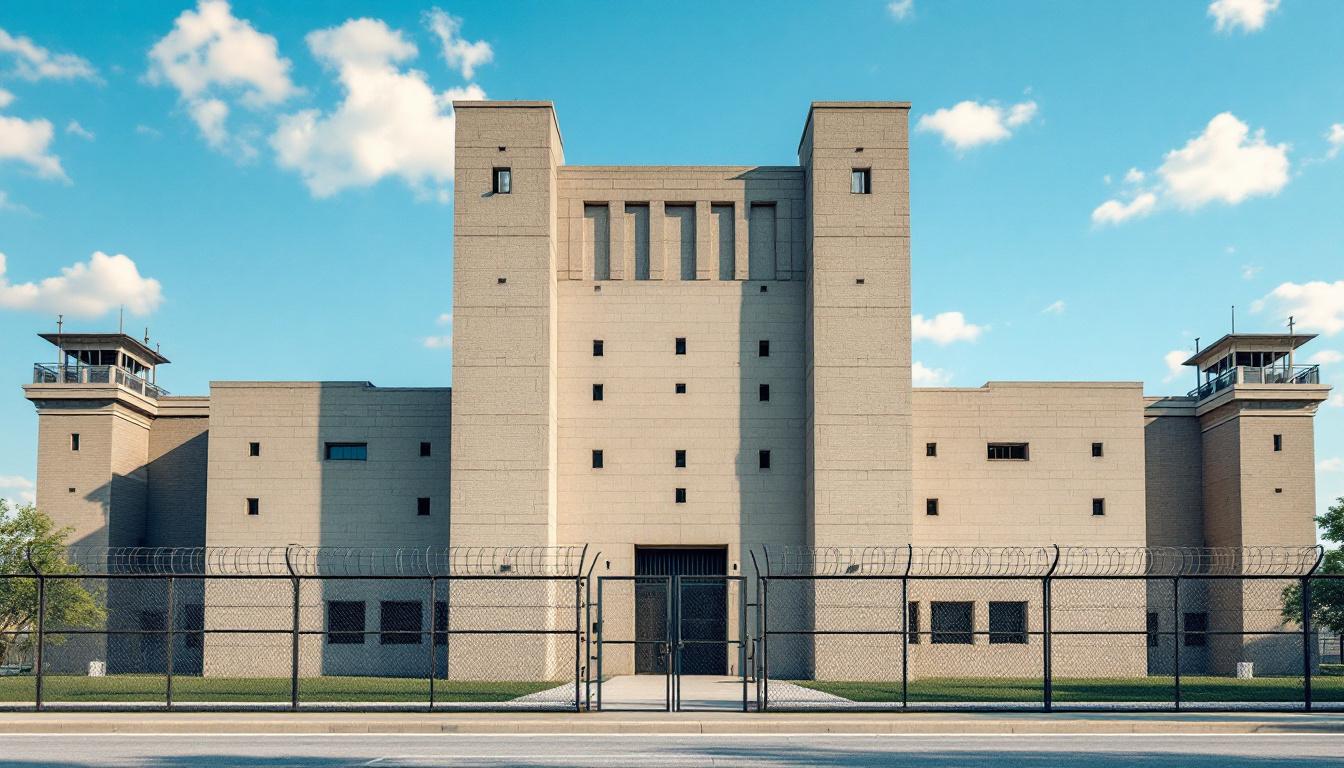
Quick Navigation
How to contact an inmate at Federal Correctional Institution - Tucson
This comprehensive guide will walk you through how to connect with an inmate at Federal Correctional Institution - Tucson. Follow the steps below to find an inmate and send letters and photos:
- Search for the inmate using our search tool below
- Create your account or log in to Penmate
- Write your message (up to 6,000 characters)
- Send instantly - inmates receive printed copies daily
Find an Inmate
Search for an inmate to start communicating today
Tip: You can search by first name, last name, or inmate ID number
To contact a person at Federal Correctional Institution - Tucson start by searching for the person on the official facility website. Perform a search by following these steps:
- Step 1: Enter their first name and last name into the search form and click "Search"
- Step 2: Locate their inmate record
- Step 3: Write down their Inmate ID and any housing information provided
Important! Be sure to enter the person's full name. Nicknames should not be used.
How to Send Messages to Inmates

You can use your phone or computer to send emails, letters, and photos to an inmate. Messages are sent electronically to inmate tablets or kiosks at the facility. If you would like to send a message, start by searching for an inmate at Federal Correctional Institution - Tucson.
Sending Photos and Postcards

A great way to send love and support to a loved one at Federal Correctional Institution - Tucson is to send photos and postcards. It only takes a few minutes to send photos from your phone and it makes a huge difference. You can also mail postcards with words of support and inspiration, or design your own postcard for special moments like birthdays and holidays.
Important! Be sure not to send any explicit photos or they may not be approved by the facility. You can also use a photo printing app like Penmate to make sure your photos are printed at the correct size (4x6 or 3x5) and are mailed according to the rules and regulations of Federal Correctional Institution - Tucson.
Frequently asked questions about Federal Correctional Institution - Tucson
-
How long does it take to deliver a message?
If you're sending an email message your letter is usually delivered within 24-48 hours. For messages sent via mail you should expect delivery within 3-7 days. All messages will need be approved by Federal Correctional Institution - Tucson.
-
How much does it cost to send a message to Federal Correctional Institution - Tucson?
You can send a message free using your phone or mail a message via USPS for the price of a $0.60 stamp and envelope. You can also purchase credits or e-stamps from services starting at $1.99.
-
What services can I use to contact an inmate at Federal Correctional Institution - Tucson?
Penmate
You can use Penmate to send letters and photos to an inmate from your phone. It's an easy way to stay in touch during your loved one's incarceration. Use the inmate locator to find an inmate's location and contact information, then you can send messages within a few minutes.
Securus messaging
Securus may be another option for communicating with an inmate at Federal Correctional Institution - Tucson. You can create a friends and family account and purchase credits to send messages. All messages will be reviewed and must be approved by the facility.
JPay
Some county jails and state prisons may support sending messages with JPay. You must register an account with the system, find your loved one, and purchase stamps to send messages. For some locations you can also attach photos.
Smart Jail Mail
You may also check if Smart Jail Mail is available at Federal Correctional Institution - Tucson. Smart Jail Mail is operated by Smart Communications and has contracted with some state and county jails. After purchasing credits, your messages and photos are sent to the facility, printed out, and then handed out to your loved one.
-
What is the mailing address of Federal Correctional Institution - Tucson?
Mailing address:
Federal Correctional Institution - Tucson
8901 S Wilmot Rd
Tucson, AZ 85756
Phone: (520) 574-7100 -
What are the visiting hours at Federal Correctional Institution - Tucson?
Visiting hours at Federal Correctional Institution - Tucson vary by housing unit and security level. Generally, visits are scheduled on weekends and holidays, with some facilities offering weekday visits. Contact the facility directly at (520) 574-7100 or check their website for the current visiting schedule. Visits typically last 30-60 minutes and must be scheduled in advance.
-
What items are prohibited when sending mail to Federal Correctional Institution - Tucson?
Prohibited items typically include: cash, personal checks, stamps, stickers, glitter, glue, tape, staples, paperclips, polaroid photos, musical or blank greeting cards, hardcover books, magazines with staples, and any items containing metal or electronics. Only send letters on plain white paper with blue or black ink. Photos must be printed on regular photo paper (no Polaroids). Always check with Federal Correctional Institution - Tucson for their specific mail policies.
-
How do I send money to an inmate at Federal Correctional Institution - Tucson?
You can send money to an inmate at Federal Correctional Institution - Tucson through several methods: 1) Online using JPay, Access Corrections, or the facility's approved vendor, 2) Money orders mailed directly to the facility with the inmate's name and ID number, 3) Kiosks located in the facility lobby, or 4) Over the phone using a credit or debit card. Fees vary by method, typically ranging from $2.95 to $11.95 per transaction.
-
Can I schedule a video visit with an inmate at Federal Correctional Institution - Tucson?
Many facilities now offer video visitation as an alternative to in-person visits. At Federal Correctional Institution - Tucson, video visits may be available through services like Penmate, Securus Video Connect, GTL, or ICSolutions. Video visits typically cost $10-20 for 20-30 minutes and must be scheduled in advance. You'll need a computer or smartphone with a camera and reliable internet connection. Contact the facility for their specific video visitation policies and approved vendors.
-
What identification do I need to visit an inmate at Federal Correctional Institution - Tucson?
All visitors must present valid government-issued photo identification such as a driver's license, state ID, passport, or military ID. Minors must be accompanied by a parent or legal guardian who can provide the minor's birth certificate. Some facilities require visitors to be on the inmate's approved visitation list, which may require a background check. Contact Federal Correctional Institution - Tucson for specific ID requirements and visitor approval procedures.
-
How can I find out an inmate's release date?
To find an inmate's release date at Federal Correctional Institution - Tucson, you can: 1) Use the online inmate search tool if available, 2) Call the facility's records department, 3) Contact the inmate's case manager or counselor, or 4) Have the inmate provide this information during a call or visit. For privacy reasons, some facilities only release this information to immediate family members.
Facility Overview
Contact Information
Federal Correctional Institution - Tucson8901 S Wilmot Rd
Tucson, AZ 85756
Phone: (520) 574-7100
Official Website

About Federal Correctional Institution - Tucson
Federal correctional facilities serve as integral components within the broader framework of criminal justice rehabilitation, and FCI Tucson, AZ operates as a significant institution within Arizona's desert landscape. Positioned in the Sonoran Desert region, this AZ correctional facility typically functions as part of the federal prison system's comprehensive approach to addressing incarceration needs while supporting broader state correctional goals through coordinated efforts and resource sharing.
The facility generally emphasizes programming designed to prepare individuals for successful community reintegration, with the population services typically including educational opportunities, vocational training, and substance abuse treatment programs. These initiatives often align with Arizona's broader correctional philosophy of reducing recidivism through skill development and personal growth opportunities. The institution may offer various counseling services, work programs, and family communication resources that support maintaining connections with loved ones throughout the incarceration period.
Located within Tucson's mountain region setting, this correctional facility often serves families across Arizona and neighboring states, providing a structured environment where rehabilitation programming typically intersects with custody and security operations. The facility's role within the state's correctional landscape generally includes supporting transition planning services and community partnership development, helping ensure that individuals have access to resources that may facilitate their eventual return to society while maintaining public safety as a primary consideration.
Programs & Services
Through a comprehensive framework of rehabilitative initiatives, the population at FCI Tucson receives multifaceted support designed to address both immediate needs and long-term reintegration goals. The facility's approach to programming emphasizes personal growth, skill development, and community connection, recognizing that meaningful change occurs when individuals have access to diverse opportunities for self-improvement. These carefully structured programs typically operate within an environment that encourages participation while respecting the varied backgrounds and circumstances of those served.
Educational programs form a cornerstone of the facility's offerings, providing pathways for academic advancement and professional development. The population may access basic literacy instruction, GED preparation, and various vocational training opportunities that align with regional employment demands. Work programs complement these educational initiatives by offering practical experience in areas such as janitorial services, which not only maintain facility operations but also provide transferable skills for future employment. These structured work environments often serve as training grounds where participants develop both technical competencies and workplace behaviors essential for successful community reintegration.
Additionally, therapeutic and support services address the complex challenges many individuals face during incarceration. Substance abuse treatment programs typically employ evidence-based approaches to help participants understand and overcome addiction patterns, while chaplaincy programs may supply spiritual guidance and community connection for those seeking faith-based support. Mentoring programs often facilitate peer relationships that encourage positive behavioral changes, and victim awareness initiatives help participants develop empathy and understanding of how their actions have affected others. These interconnected services work collectively to create an environment where personal transformation becomes possible through sustained engagement and community support.
Daily Life & Visitation
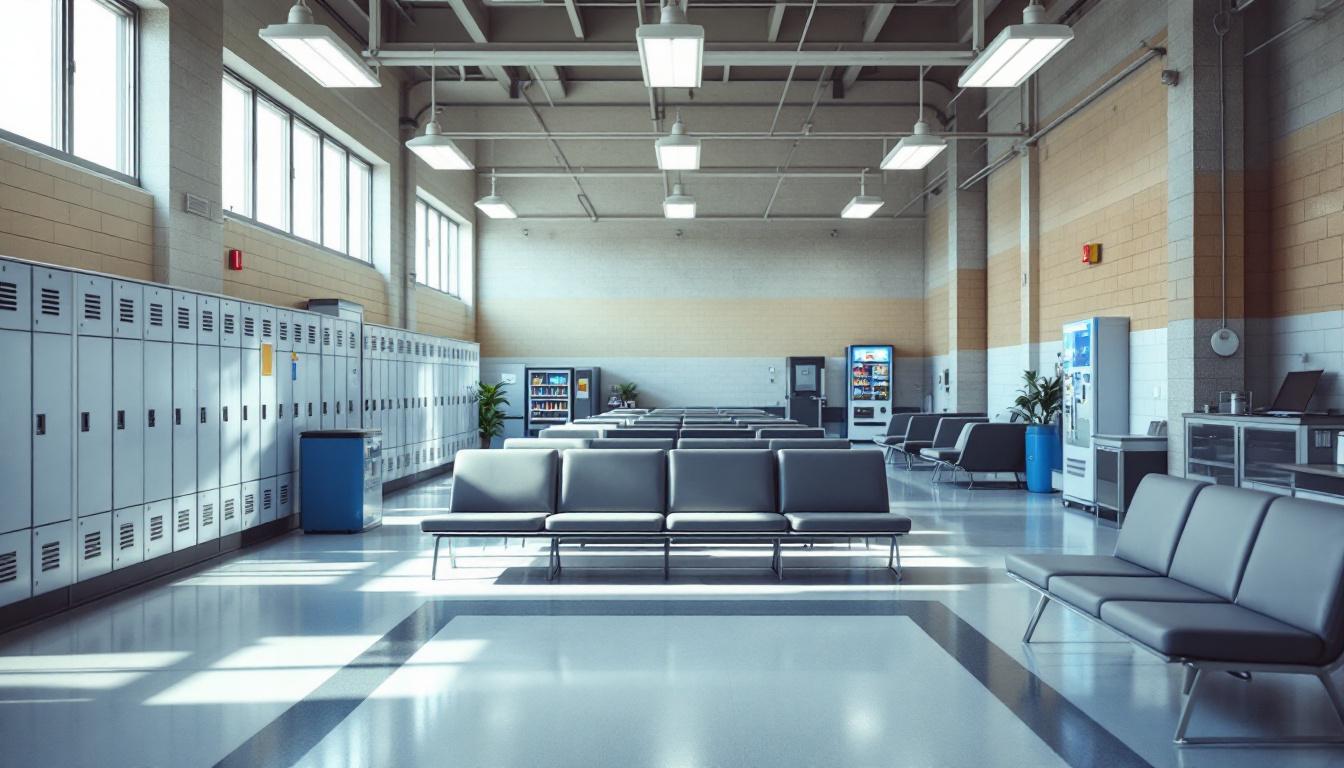
Comprehensive organizational systems shape every aspect of the experience for the population at FCI Tucson, where structured schedules and clearly defined protocols currently govern the rhythm of institutional life. The facility continues to operate through a framework of coordinated housing units, work assignments, and programming that supplies predictability and order throughout each day. Generally, the population follows established routines that typically include scheduled meal times, work details, recreational periods, and educational opportunities, with movement between different areas of the facility carefully managed through security procedures appropriate for a federal correctional institution.
Living accommodations at the facility are organized into housing units that typically house multiple individuals in dormitory-style or cell-based arrangements, depending on the specific area of the institution. The population generally has access to basic amenities within their assigned housing areas, including personal storage space for approved belongings and access to commissary items that may be purchased to supplement standard-issue supplies. Additionally, dining arrangements follow structured schedules where meals are served in designated areas, with the population typically rotating through meal periods based on their housing assignments and work schedules.
While maintaining security protocols, the facility usually offers various recreational and exercise opportunities that supply physical activity and social interaction for the population. Work assignments often include facility maintenance, food service, and other institutional operations that help maintain daily operations while providing structure and purpose. Additionally, visitation policies typically allow for scheduled family visits and communication options that may include phone calls and correspondence, helping the population maintain connections with their support systems outside the facility. Programming schedules generally incorporate educational opportunities, vocational training, and other structured activities designed to support rehabilitation and preparation for eventual reintegration into the community.
Ready to Connect?
Start communicating with your loved one today
Search for an Inmate
